Icahn Sells!
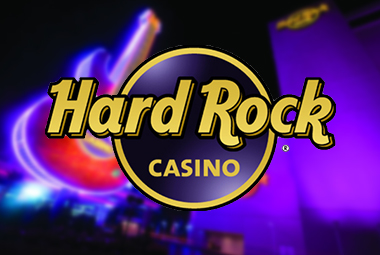
The last several months have been business as usual for one side of the Boardwalk and a veritable graveyard for the other side of the Boardwalk. After the 2014 closure of The Showboat followed later that year by the shuttering of The Revel, the Trump Taj Mahal bookended that side of the Boardwalk along with its close next door neighbor, Resorts Atlantic City.
After a long battle that was arguably not all that hard fought, particularly not in the end, the Trump Taj Mahal eventually shuttered in October of last year leaving Resorts looking at an uncertain length of time as being, perhaps, the only active casino on that side of the Boardwalk. Granted, the former Showboat has reopened, but it no longer operates as a casino. As widely publicized, the former Revel casino, purchased by Glenn Straub, is going to be renamed TEN Casino, provided, of course, it ever reopens.
However, in a surprising piece of news released within just the last several hours.
It has been declared that the former Trump Taj Mahal property has been purchased by none other than Hard Rock International!
This comes as somewhat of a surprising move as Tropicana owner Carl Icahn is the one to sell to Hard Rock at an undisclosed price, especially given the fact that he mentioned it would take a considerable amount of money for him to ever sell the property without a deed restriction prohibiting it from operating as a casino. (Don’t know what else you’d use it for, can’t imagine that the whole Showboat play will work twice, and that’s not even proven) In any event, the offer must have been good enough as HRI has purchased the property, intends to invest 300 million (and as many as 15-18 months) and rehab and rebrand into Hard Rock Casino Hotel.
The gut reaction, as is natural, is that this is fantastic news for Atlantic City, especially in the short-term, as the result is going to be all kinds of reasonably good paying construction jobs that will be necessary to restore the former Trump Taj Mahal into something resembling its former glory. In addition to that, it would have been a shame to see the old casino razed as, at one time, it was the most expensive casino build in the entire country. Interestingly enough, the current record holder is another (currently) shuttered Atlantic City casino, the former Revel!
When Hard Rock does open, which is projected to potentially be as late as Summer of 2018, one of its main competitors will presumably be the Tropicana, which is what makes this an interesting move by Icahn, from my standpoint. Icahn claimed, as of January of this year, that he lost 300 million throughout his ownership of The Taj and would be thrilled to recover half of that. It seems ironic that the amount Hard Rock plans to invest into the property is the same as Icahn claims to have lost.
Of course, Carl Icahn, at one point, had planned to keep the property and run it alongside his Tropicana for the long haul. Icahn had eventually acquired full ownership of the former Taj and had planned to make substantial investments (though not as substantial as those of Hard Rock) into the property. Unfortunately, he was hampered by essentially needing the property to continue to operate while these reinvestments were taking place, as well as his inability to reach a labor contract with Unite Here 54 acceptable to both sides.
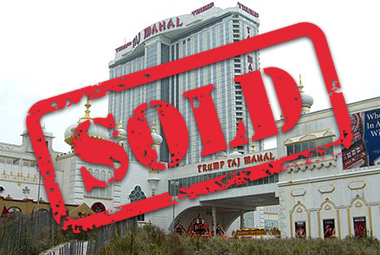
At a time when it was clear that The Taj was in imminent danger of being shuttered, Unite Here 54, as a group, accepted having its wages and benefits slashed in an effort to save the casino. The Taj was not the only beneficiary of the reduced Union demands, the CET casinos as well as Carl Icahn’s Tropicana also benefitted, as well.
Eventually, as several Atlantic City casinos died off and the market began to stabilize, the casinos eventually restored the wages and benefits of the Union’s workers, with Trump Taj Mahal as the lone exception. Granted, it took the Union threatening a strike against several of the casinos, (a strike that they had to go through with Taj, at that point) but eventually the casinos, including one owned by Icahn, relented and reached a labor agreement.
While Icahn was, arguably, not entirely in the wrong for not wanting to extend the same benefits and wages to workers at The Taj, (the place was absolutely dumping money and had been for years, with or without a labor agreement) the Union went through with its strike against the casino. The strike started in July of last year and the casino eventually capitulated and shuttered for good, at least in its current incarnation, on October 10th, 2016.
I have made my position on this clear several times, so I’ll be brief: The Union was simply demanding something that it made absolutely zero financial sense for the casino to give. The casino had performed so badly for so many years that the month immediately before the strike was the first month, in basically forever, that the casino showed an operating profit. That operating profit, of course, even ignores any additional monies that were to be invested into the property by Icahn.
In addition to that, had the employees had their benefits returned to them going into that month, then yes, the casino would have posted a pretty sizable loss.
However, I do side with the Union somewhat in that I believe Icahn took things to extremes when he eliminated any PTO completely, and we’re not just talking sick and vacation days, we’re talking about paid breaks.
Even though it appeared unlikely, the Taj was under a possible threat with a looming vote in the state to authorize casinos in the Northern part of New Jersey. While some Atlantic City casinos would be able to survive an in-state onslaught, even though they have been dealing with out-of-state competition for years, the Taj was not a casino that could weather the storm of even a modest additional decline in revenue. Had the strike not occurred, Icahn had publicly stated that he was prepared to invest many tens of millions into further property improvements as long as the vote was a, ‘No,’ which seemed likely.
Whether fortunate or unfortunate, the strike happened and it all became a moot point as the protesters succeeded in driving significant business away from The Taj. The protesters were initially very aggressive, occasionally blocking the driveway of the establishment, but they eventually calmed down and stuck to siren-blaring, jeering and yelling. The protesters on the Boardwalk may have been less aggressive, but they were more effective, as they had the ability to approach more people and have a one-on-one discussion on why they felt the would-be visitors should not enter the casino.
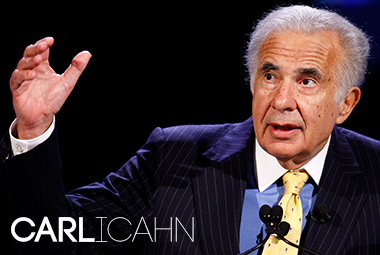
To some extent, even if we accept the fact that Carl Icahn the man always does what he thinks is best for business, we still have to separate the man from the establishment. Even though the main could have made the concessions that the Union wanted, to the letter, the establishment could not and it wouldn’t have made sense for either of them to. Icahn publicly claimed that he had made counteroffers to the Union, but the Union denied any such offers on their website.
It was an unfortunate, but perhaps inevitable, situation. The Union had threatened to strike against a total of five casinos in order to get the labor agreement it once had back in place, and the Taj was the only one unable to play ball with that because the financial losses simply would have been too staggering. At that point, though, it becomes difficult for the Union not to strike, otherwise, any further threats of a strike by the Union would be regarded as hollow. The Union did what it had to do, and it did it very well, which caused the property to do what it had to do.
What seemed a shame because it would have been interesting to see if substantial investments could have turned The Taj around now seems like good fortune, for all except the workers, of course. Instead of the incompetent management of Carl Icahn and a commitment to the property that was tepid, at best, HRI seems positively committed to making a substantial investment in the property such that it should be able to compete with anyone in the city.
Perhaps most ironically is the fact that, in my opinion, Icahn has not done a terribly effective job of compelling many of the Taj faithful to go to his own Tropicana. Granted, he got some of them and the revenue improvements (vs the prior year) have been significant for Tropicana ever since the closure of Trump, but looking at those same increases as a percentage of what was The Taj’s business kind of makes me casually shrug. I would have almost expected a full 40% of The Taj’s casino win to be essentially diverted directly to Tropicana, and that just hasn’t happened.
Of course, even though the last two months have shown the beginning of a possible trend of improvement for Atlantic City, who, as a whole, was up just under 6% in January ‘17 vs. January ‘16 casino win, the individual casinos are hardly out of the woods, particularly if two new competitors open.
There is quite a possibility that the new competition in the city will leave a few casinos that had breathed a sigh of relief after surviving the rash of 2014 casino closures, as well as the closure of The Taj last year, again gasping for breath as the War of Attrition-Atlantic City reignites and several casinos again enter into the battle to not be the next to die.
In fact, I am going to assume a few things: The first thing I am going to assume is that the former Revel (now known as TEN) reopens, and that the Hard Rock Casino Hotel opens. The second of those two things is definitely going to happen, because HRI said so, but the first remains in doubt, because nothing that Glenn Straub says necessarily matters. With all of that said, anyway, I am going to list the casinos from no risk to most risk, all according to my personal opinion:
Borgata:
Don’t worry about Borgata, they’ll be fine.
Caesars Palace:
This casino is performing exceptionally, and would also have Bally’s (the CET property that would close first, if any) business diverted to it. Even though Borgata is at no risk whatsoever, an argument could be made that CP is at even less risk.
Hard Rock Hotel Casino:
Hard Rock Hotel Casino could be directly financed by Hard Rock International, an especially adept casino management company, who is entering the market for the long game. In fact, it’s possible that a major part of Hard Rock’s strategy involves more-or-less deliberately putting other casinos out of business. With the might of the corporation backing them, this casino could take operating losses, perhaps even sustained operating losses, if they see promise in the long game.
That they see promise in the long game is completely beyond refute. In addition to flirting with becoming an A.C. player, in one fashion or another, for the last several years, HRI was reportedly interested in opening a Northern New Jersey casino had the November ‘16 ballot measure passed. It failed and that became a non-issue, but HRI might still pursue opening a Northern New Jersey casino should a reiteration of the measure, the earliest of which would be November of 2018 (though it might be better for those in favor to wait for an off Presidential election year) pass.
Either way, given an investment in renovations and rebranding that will exceed what some 100% new constructions even cost, it is pretty apparent that this company is in it for the long haul, has the money to do it, and unlike the Revel, would not fold after a couple of bad years.
Harrah’s:
Basically for the same reasons as Caesar’s Palace, just not quite to the same extent. For CET to have to close two of its three remaining properties in the city, which would require there to be an utter market catastrophe, Harrah’s would go before The Palace.
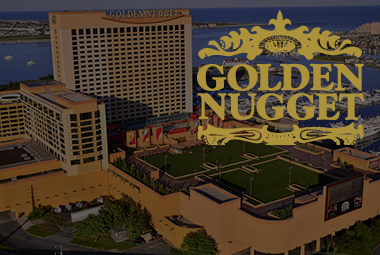
Golden Nugget:
I would personally consider Golden Nugget extremely safe due to an excellent marketing department and capable management that have fought this war of attrition, and survived, before. Golden Nugget did an unbelievable job of marketing to the disaffected long-term patrons of shuttered A.C. casinos of 2014 (as well as Taj customers) using a combination of tier matching, offer matching, comped rooms and extremely aggressive Free Play offers.
The fact of the matter is that the people in this casino that matter know exactly what it takes to bring in the business. Furthermore, GN has the best Internet casino game (relative to total revenues) of any of the casinos in the city, so they are able to adapt and find creative ways to make money, as well.
For Golden Nugget to fail, I believe, would require at least two of the casinos that appear below this entry to have already failed. For that to happen would require not just increased competition, but also for the A.C. market itself to have dwindled when it is currently showing signs of, if not improving, at least stabilizing. Provided GN sticks to its guns of aggressive marketing and a focus on customer service, it should be fine.
Tropicana:
These last four casinos for this list are really difficult to put in order, but I think that I may have this right:
I’m going to give the Tropicana the best chance of surviving out of the remaining casinos because I think it performs the best relative to its size and also because Bally’s is a redundant casino.
Tropicana has and, presumably, will continue to aggressively market to low-rollers and weekenders while remaining just appealing enough to draw a few customers who would, “Make sense,” being somewhere else. Furthermore, Tropicana also has the added benefit of bookending one side of the Boardwalk (even though that didn’t save Taj) and that enables guests of the Tropicana to enjoy all that the Boardwalk has to offer while being near relative seclusion.
Furthermore, while the Tropicana has not performed as well as I would have expected with respect to keeping customers of The Taj, it has performed in that regard somewhat as well as the fact that it has a pretty loyal and consistent customer base. Additionally, being run by Icahn means that it not only has no insurmountable debt, but also that if a renovation would be in the best interests of the property, the money with which to do it is there.
As much as I may dislike Carl Icahn as an owner, and as much as I would want Tropicana to be the one to go if one and only one Atlantic City casino had to go, (from a personal standpoint, not from an advantage play standpoint) as with The Nugget, I think two of the casinos appearing below this on the list would go first.
Resorts
I think the main thing saving Resorts is what appears on most (if not all) of the mail, ‘A Mohegan Sun Property.’ The fact of the matter is that Resorts is something of a cross-marketing sort of casino that, when used in conjunction with the Mohegan Sun, Mohegan Sun Pocono and perhaps the Massachusetts property, could potentially lose a little bit of money but be a net financial positive for the tribe.
Furthermore, Resorts seems to remain somewhat consistent and, as the lowest of low-roller places in Atlantic City, has a pretty strong locals market as well as several visitors who are mostly enticed by strong comps for (relative to other casinos) weak play. If you’re anything like me and just want to get as much as possible, without being particularly picky about where it comes from, the Resorts is likely to already be, and continue to be, your favorite destination in Atlantic City.
Besides that, the opening of the Hard Rock Casino Hotel and TEN Casino (again, assuming) will bring a sort of life and vibrancy to that end of the Boardwalk. Granted, it’s tough to say for sure whether or not having two casinos down there will help Resorts in an overall sense, but I think that it is pretty safe to say that having one definitely would. Bookending the Boardwalk would usually be a positive, except for when you’re isolated from any other casino by nearly a mile and the only foot traffic on your end of the Boardwalk is either staying at your casino or The Showboat.
And, yeah, with only Resorts down there, it is unlikely that the casino-faring public will have any real reason to stay at Showboat anymore.
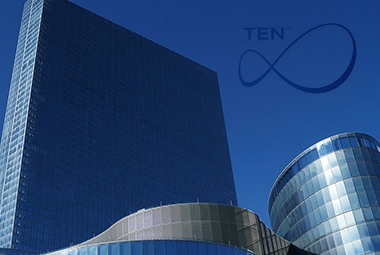
TEN Casino:
TEN Casino is an interesting one because I almost decided to put it in the slot of most likely to close.
Granted, TEN will not be mired by the debt going in that Revel had working against it when it opened, given that Revel cost over a billion dollars to build and Glenn Straub purchased TEN with well under a hundred million. Probably in cash. Using only one pocket.
But, none of that matters!
The main thing that Revel had going against it, besides the debt that would cripple any business not named, ‘Facebook,’ or, ‘Wal-Mart,’ is the fact that Revel also had astronomical operating expenses that, sure enough, it couldn’t meet. Granted, a not insignificant portion of those operating expenses came from Revel’s agreement with ACR Energy Partners, the owners of the power plant that represented Revel’s sole means of power, but it’s not like Revel consistently paid them or anything.
The fact of the matter is that Revel could not meet its operating expenses even if you took that out of the equation and it found itself in a continuous pattern of borrowing, bankruptcy, restructuring its debt, just to remain in operation. In fact, the only month the casino ever managed to beat its operating expenses required it to throw out a $100,000 loss rebate. While such a loss rebate is a pretty blatant screw up in and of itself, this one was beyond screwed up and also marketed very poorly.
One reason that Revel never had a chance was the fact that Kevin DeSanctis was its CEO upon the opening of the property. Kevin DeSanctis never wanted to have a casino, he wanted to have an exclusive club of the rich and the famous that go to Atlantic City, the only problem with that being that there just aren’t that many of them and they still (mostly) preferred Caesars Palace or, especially Borgata.
While the property was beautiful, it was terribly inefficient with the single biggest problem perhaps being that it was a trial just to get to the casino floor, requiring both an escalator and an elevator to be able to do it. Casinos usually like to make the casino area prominent, and the first thing guests see, but Revel wanted to think outside the box.
Another outside the box thought was not allowing smoking in a jurisdiction that does.
The thing is, you can get away with that if you’re a lounge in a town full of lounges. There’s a market for you, there are enough non-smokers to support you. However, when you’re a casino in a market in which casinos do not know how many months they will survive, and you’re mired in debt, do you know what customer you want?
Any customer willing to come through the door.
Kevin DeSanctis did not realize that, and in his infinite wisdom, decided that it would be necessary to insult and turn off as many gamblers as possible. In addition to the non-smoking, he labeled the vast majority of Atlantic City’s market as essentially a bunch of low-class people that he had absolutely no interest in marketing to. He said he was not interested in the overnight or two night convenience gambler and was going for three and four night stays. He said that he would not be liberal with room comps, BEFORE THE PLACE EVEN OPENED, because it cost so much to build and needed to make money. Finally, he decided not to have a buffet writing them off as, “Mass feederies.”
The Revel existed as a concept for Kevin DeSanctis, and it existed as nothing more for a concept for many other people, as well, because Kevin DeSanctis eliminated any thought of visiting it from their minds before the doors had even opened.
What does this have to do with the would-be (if it ever happens) TEN?
More than you would expect, for one thing, TEN is still going to have comparable operating costs despite its absence of debt. It is important to remember that Revel’s debt was a major problem, in that it prevented anyone from having any interest in pumping the money into it that may have given it a fighting chance, but it’s biggest problem was not making enough to cover the day-to-day.
Unlike Kevin DeSanctis, Glenn Straub seems interested in employing a capable management company to handle the casino operations for him, or perhaps outright leasing the casino operations, (interestingly, Hard Rock was allegedly one of the potential suitors) so that is already a step better than Revel. However, it is still a lot to ask for a technically new casino in a market barely improving to come in and make enough to cover operating expenses.
Furthermore, Glenn Straub has shown the ability and tendency to dump something that he decides is a losing investment without a second thought. After he opens TEN casino, he wants to see some return on investment quickly, and if not, it won’t take much for him to burn it to the ground and sell the pieces for whatever he can get.
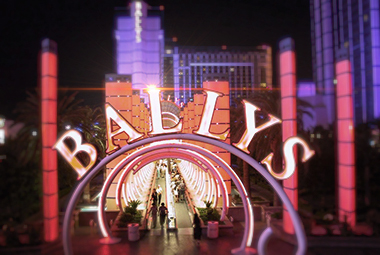
Bally’s:
Let’s pretend for a second that Bally’s is not a completely redundant casino to Caesars Palace.
Let’s also pretend for a second that CET could not easily divert Bally’s business to Caesars Palace or Harrah’s while losing very little of said business.
Even then, CET has shown the capacity of closing a casino operating profitably before, as it did with the Showboat in 2014. While people found that decision stunning, it was one of the few things CET did that year that made any sense.
The fact of the matter is that Showboat was operating profitably, but if you’re a dispassionate mega-corporation run by whatever a Gary Loveman is, then do you really care about the jobs of several hundred displaced Showboat employees, or maximizing profits?
The fact of the matter is that CET was likely able to close Showboat and deflect enough of those revenues to other CET properties, at a small enough increase to costs, to effectively have an even greater profit as a result of closing a profitable establishment. That’s before we take into consideration the fact that they managed to sell the property in a fairly one-sided deal. The fact of the matter is that it took a ton of employees and resources to run Showboat, but not many additional employees and resources (by comparison) to handle Showboat’s customers at the other properties.
That’s CET.
Conclusion
For fans of The Taj, and to a wider extent, of the Boardwalk, the purchase of the property by Hard Rock International likely represents an exciting event for you. It not only represents an exciting event to me for that reason, but it will also be an incredible story to follow.
That’s Atlantic City, just when you think things have stabilized, something happens. The positive is it is always entertaining while the negative is that a few of the casinos can never really get comfortable for very long.
Barring any great upswings or downswings in the overall market, the opening of TEN and Hard Rock Casino Hotel will make things in Atlantic City very unpredictable again very soon. But, I’ll be here reporting what we know and trying to predict what we don’t know all the same.
Comments
I view Bally's and Caesars as the same casino. If you leave one, head down the boardwalk, you're likely to walk right into the other. Closing Bally's would be disastrous for Caesars right away. If it were to happen, it would be out of desperation.
Hard Rock is a nail in Ten's future. He'll tear it down for scrap.
I agree with that, but I don't think it would disastrous, I think the Bally's business would just move the few feet on down to Caesars Palace. Again, Caesars has experienced some impressive revenue growth over the last several months in terms of casino win and Bally's has done almost nothing compared to the prior year.
Other than the experience running casinos, why should Hard Rock be an absolute nail in the coffin for TEN? TEN is still the building that cost over a billion dollars to build, so if Straub could find competent casino management, he'd be able to compete with anything Hard Rock can put out there aesthetically and in terms of amenities.
I mainly just don't think Icahn is that committed to TEN in the long-term, I also think the devil is in the details with operating costs. Hard Rock International, for example, could have probably jumped in and bought TEN for not that much more (maybe less) that they paid for The Taj and they also wouldn't have to spend 300 million renovating TEN. Why would they want the Taj and not TEN? I think it's the operating costs, you have, 'Too big to fail,' and I think TEN may be too big to succeed.
Same casino idea. People stay at Bally's and also play at CP. Caesars rooms are more expensive to stay. People can get fully comped at Bally's but have to pay extra at Caesars. Just because the numbers might be better at CP, doesn't mean Bally's has nothing to do with it, and only Caesars gets the credit. They're symbiotic.
Remember the doom and gloom, Atlantic City can only support 4 casinos or whatever people claimed? There's still truth to it. People might believe there is room for another casino, but not two. I dont think Straub is serious about opening Ten anyways, but he will be scared to act now in the face of more competition. Hard Rock also has a history of saying they'll open in AC and never doing so. It's still possible they'll back out of Taj.
I really doubt the amount Icahn put into Taj. After he decided to close it, he replaced burnt out light bulbs. Those light bulbs could have easily been part of investing 100 mill, but was he waiting for a sale. Just saying, probably exaggerated.
I hate to nitpick, but there is no "Palace" at Caesars.
'Caesars Palace' is not located in AC.
'Caesars' is located in AC.



